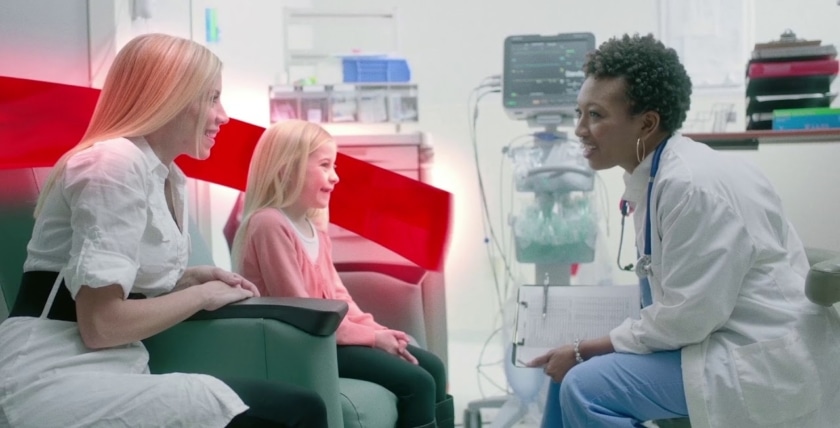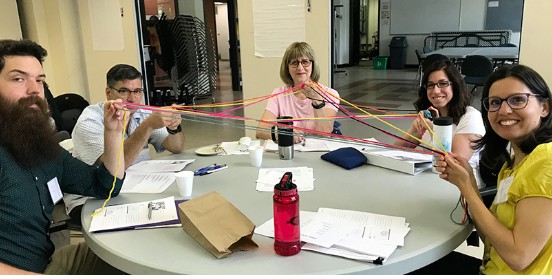


Since 2015, the Ministère de la Santé et des Services sociaux (MSSS) has made it a strategic priority to integrate the partnership with users and families model across Quebec’s health system. Indeed, user and family partnership is an integral part of the Plan stratégique 2015‐2020 du MSSS, and has been materialized as a result of the Cadre de référence de l’approche de partenariat entre les usagers, leurs proches et les acteurs en santé et en services sociaux.

The CEPPP is working with the Ministère de la Santé et des Services sociaux (MSSS) in the context of a provincial call for projects to support the implementation, the evaluation, and the dissemination of results of 21 projects on user and family partnership. All of the projects are implemented across the public health and social services network in Quebec.

Canada Health InfoWay’s Forum d’évolution via les pairs (FEP) is a peer network that engages with and mentors physicians to promote the use and adoption of digital health.

The CEPPP is collaborating with the Montreal Heart Institute (MIH) for a project geared towards transforming its cardiology/family medicine unit from a hospital model to a trajectory model in partnership with patients and their families.

The CEPPP is collaborating with the Projet Hôpital Vaudreuil-Soulanges (PHVS) team to integrate patient voices in the planning process of the new hospital’s construction. HVS is a new hospital that will be built on the réseau local de services (RLS) territory of Vaudreuil-Soulanges, located in the CISSS de la Montérégie-Ouest.

In collaboration with the Centre intégré universitaire de santé et de services sociaux du Centre-Sud-de-l’île-de-Montréal (CCSMTL), Université de Montréal, through the Department of Family Medicine, is responsible for developing and implementing the Unités de formation clinique interprofessionnelles universitaires (UFCI-U).

Université de Trois-Rivière’s (UQTR) Centre d’apprentissage Santé et Rétablissement is currently implementing a project called Recovery College, an Anglo-Saxon peer support model for mental health patients. For this project, the CEPPP is co-developing the training curriculum designed to train the trainers.

The CEPPP is collaborating with the SPOR (Strategy for Patient-Oriented Research) Support Unit in Quebec by contributing its expertise to the development of a provincial strategy for partnerships with patients and the public among primary care researchers.

The CEPPP is collaborating with the Canada Research Chair on Patient and Public Partnership to co-construct an evaluation plan for Compassionate Communities, a research-action project on community-based end of life care.